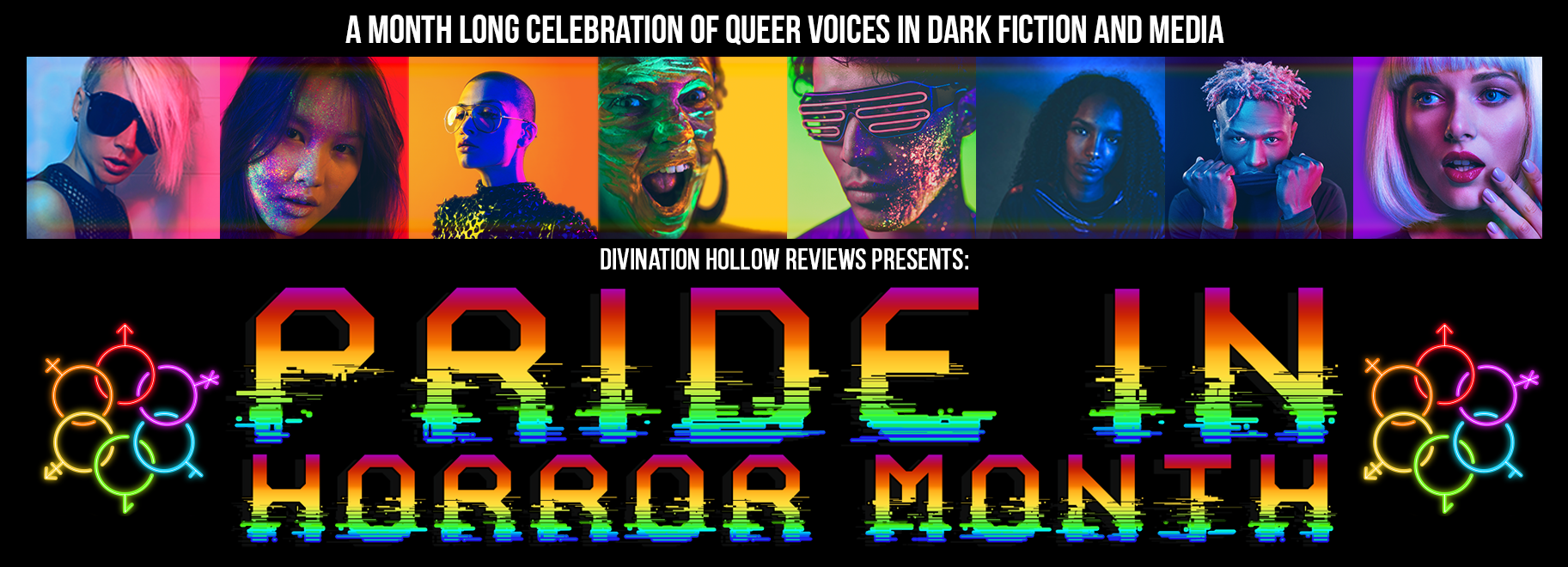PIHM: Queerness in Titane by Dai Baddley
As always, I was late to the party in watching Julia Ducournau’s Titane (2021), her follow-up to the incredible Raw (2016). Like Raw, Titane is unflinching and uncomfortable, and it had me squirming in my seat multiple times. The horror is less clinical than in Raw but just as stark. Raw was hailed as the beginning of a potential new wave of feminist horror to match the other “elevated” horror films seen in the last decade. Titane, though just as daring, did not read as feminist to me and despite its imagery, was not meant to be a trans film. However, inadvertently, it resonated with me as an autistic trans person.
Titane tells the story of Alexia, who has a titanium plate installed in her head after being involved in a car accident as a child. Now grown up, she is still drawn to cars, and dances on them at shows for a living while sometimes committing murder on the side. After killing an unwanted suitor at a show, she climbs into a car and has sex with it, which leads to her finding herself pregnant. On the run for her murders, she disguises herself as a long-missing boy, Adrien, by binding her breasts and belly, and moves in with Adrien’s father, Vincent.
This, of course, is a lot for one film, and it is strange and off-putting and difficult as Alexia herself, but Ducournau weaves the story together seamlessly, so it doesn’t matter how exactly a car could impregnate a person, or how Alexia got away with her crimes for so long. Instead I found myself preoccupied with the crisis ongoing in Alexia’s body with her pregnancy and the pressure of maintaining her disguise, and the connection she forges with Vincent, her surrogate father.
There is obvious queer imagery in the film; Alexia’s unconventional sexuality and then binding her body to pass as a young man. I did not read this as a trans masc film, but there is a more subtle trans allegory at play. Alexia presents as Adrien out of necessity, out of survival, so that Vincent will accept her. She binds with bandages, which we see causes painful lesions on her torso (Obligatory: PLEASE DO NOT BIND WITH BANDAGES), she goes as far to break her own nose to change her face, and hacks off her hair. All the while her body is acting in ways it wasn’t supposed to, and her pregnancy is not a normal one; instead of milk, motor oil is secreted from her orifices, even leaking from her breasts. Scratching her horribly irritated and itchy skin, it tears away to reveal more titanium underneath. Alexia is living in solitary hell, aware she cannot maintain this disguise indefinitely; it’s too painful and her pregnancy will not stop progressing, but she needs Vincent; his love, his protection.
As to Vincent himself, he is a much more sympathetic parent of a queer child than we normally see in these circumstances. Vincent Lindon’s performance is heartbreaking; his grief is palpable, and despite all evidence presented to the contrary he desperately needs to believe he has his son back. He appears to all the world as a pillar of strength, aging but no less muscular than his young colleagues in the fire station, until we see how much it costs him in private to maintain that image. He tries to connect with Adrien emotionally, as much as he is filled with joy at having him you can see his pain that Adrien will not open up to him, that Adrien cannot see that his papa loves him unconditionally.
Alexia’s distance with Vincent is necessitated by her disguise, but by this point we have already seen she has this distance with all people. Alexia is not meant to be relatable, and indeed she is not a good person by any definition, but speaking for myself as an autistic person I found that this notion of being fundamentally incompatible with other people resonated with me. Any attempt at closeness from another person makes her lash out, and she finds companionship only in the cold, unfeeling titanium of automobiles. This means that watching her relationship with Vincent develop, through all of its pain and awkwardness, is deeply moving.
Once again, I doubt any of this is intentional on Ducournau’s part, but part of being neurodivergent and queer is seeing ourselves reflected in the misfits and the strange, and in Titane she has created a powerful story of the bonds of chosen family.
By Dai Baddley
Twitter: @PrepareToDai




